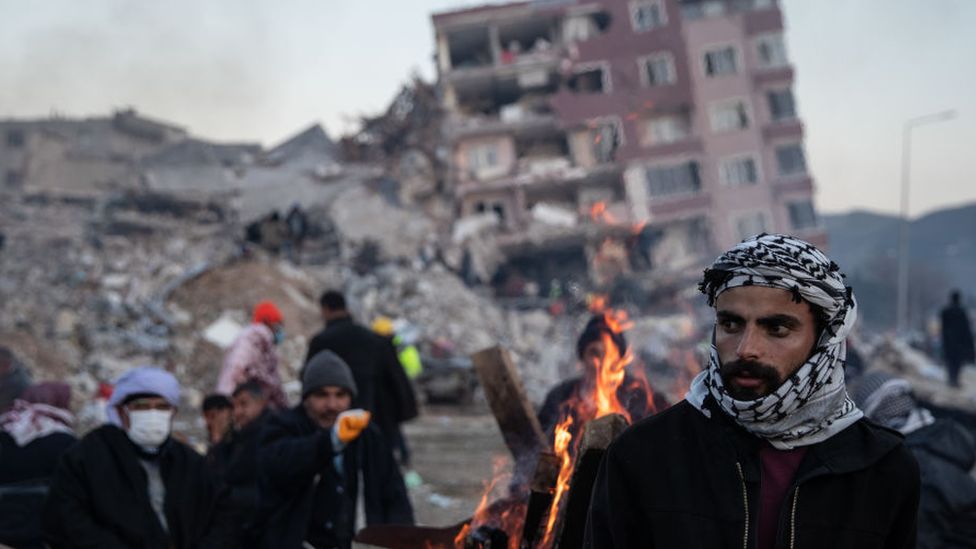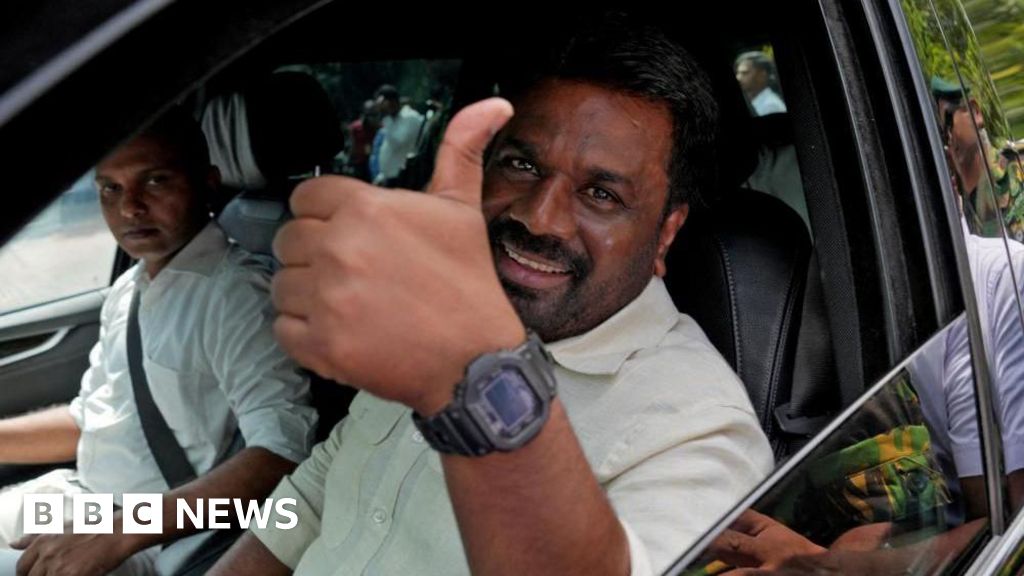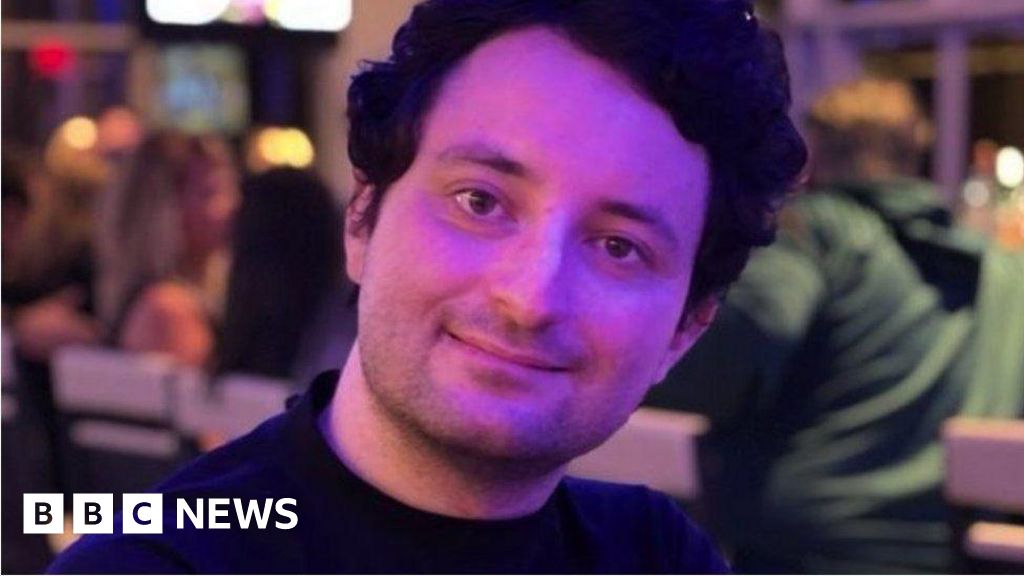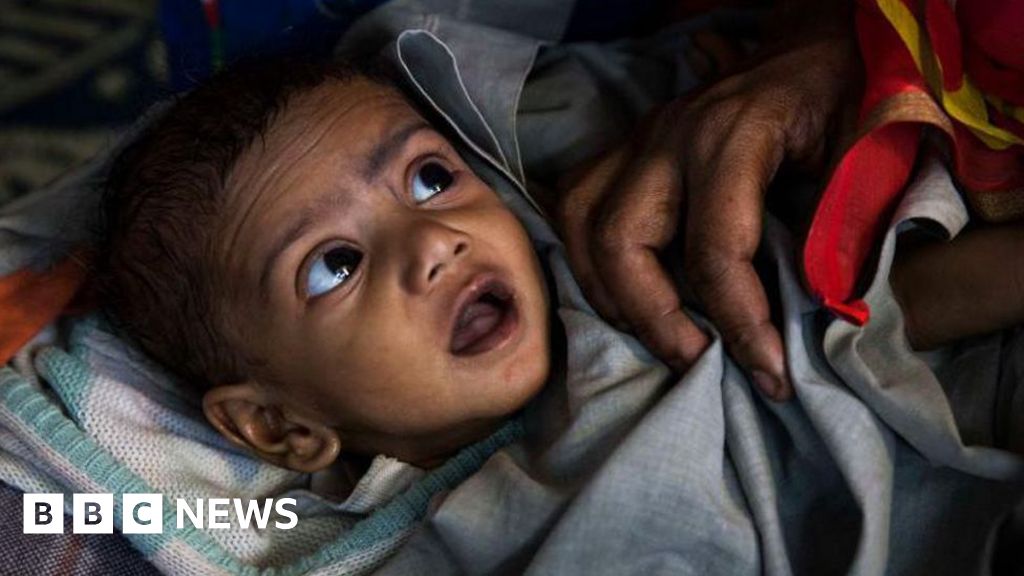ARTICLE AD BOX
 Image source, Getty Images
Image source, Getty Images
More than 20,000 people are now known to have been killed in Monday's earthquakes in Turkey and Syria, though the UN warns the disaster's full extent is still unclear.
Rescuers are still searching rubble for survivors, but hopes are fading almost 100 hours since the tremors struck.
Freezing conditions threaten the lives of thousands of survivors who are now without shelter, water and food.
Turkey's president called the quake "the disaster of the century".
A major international relief effort is gathering pace. On Thursday the World Bank pledged $1.78bn in aid to Turkey including immediate finance for rebuilding basic infrastructure and to support those affected by the earthquakes.
But the efforts of 100,000 or more rescue personnel on the ground are being hampered by a number of logistical hurdles including vehicle shortages and devastated roads.
UN chief Antonio Guterres warned the full extent of the catastrophe was still "unfolding before our eyes", especially in Syria where a long-running civil war has devastated the country.
On Thursday, the first UN humanitarian aid crossed the border into north-western Syria through Idlib's Bab al-Hawa crossing. The crossing is the only way UN aid can reach the region without travelling through areas controlled by Syrian government forces.
Mr Guterres promised more help was on its way and he urged the UN Security Council to allow supplies to be delivered through more than one border crossing.
"This is the moment of unity, it's not a moment to politicise or to divide but it is obvious that we need massive support," he said.
Munira Mohammad, a mother of four who fled Aleppo after the quake, told Reuters that they were in desperate need of heating and more supplies, saying: "last night we couldn't sleep because it was so cold. It is very bad."
The White Helmets rescue group said the only UN convoy that reached the region did not contain specialised equipment to free people trapped beneath the rubble.
"This makes us very disappointed at a time when we are desperate for such equipment to help us save lives from under the rubble," the group said on Twitter.
Warnings of second disaster
Officials said on Thursday that 17,134 people had died in Turkey and the death toll was at least 3,162 in Syria. The toll surpasses the more than 17,000 killed when a similar quake hit northwest Turkey in 1999.
Tens of thousands of people across Turkey and Syria are spending a fourth night taking refuge from bitter temperatures in makeshift shelters having been made homeless by the quakes.
Resat Gozlu, a survivor in south-eastern Turkey who is now living on the floor of a sports complex with his family, said rescue workers did not arrive until three days after the quake.
He said many remain trapped under the rubble and others died of hypothermia.
"If this continues there could be serious health issues and illness," he told the BBC.
Meanwhile, the World Health Organisation (WHO) warned a second humanitarian disaster will strike unless survivors can get access to shelter, food, water and medicine "very fast".
The WHO's Regional Director for Europe, Dr Hans Kluge, told the BBC the organisation's staff in Turkey's Gaziantep have to sleep in cars because "there's still hundreds and hundreds of aftershocks".
Dr Kluge said communities in Syria depend on water reservoirs, which were the first to fall. He said the reservoirs need to be replaced or the country faces cholera outbreaks - which he said was an issue before the earthquake.

 1 year ago
60
1 year ago
60








 English (US)
English (US)